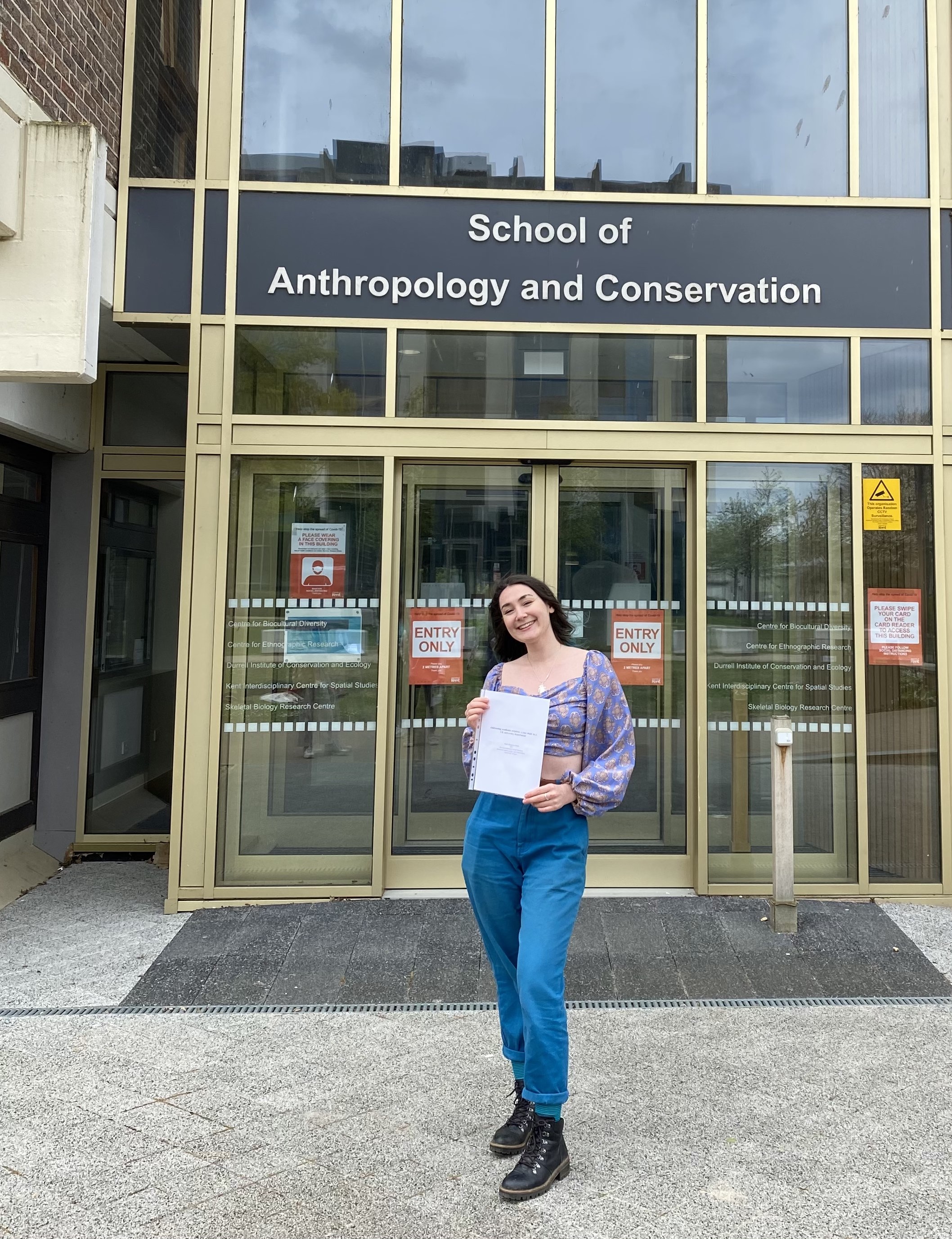The event has been organised by Dr Charlie Gardner, Lecturer in Conservation Biology and Sustainability Lead for the School, Lois Mitchell, MSc Conservation Project Management, Myra Mansell, BSc Wildlife Conservation and Katie Hargrave-Smith, BA Environmental Social Sciences.
When I first began my undergraduate dissertation journey, I intended to research whether the School of Anthropology and Conservation could create its own carbon offset. I was therefore sent the emissions from the 2018/19 academic year to calculate the total emissions in order to estimate the offset requirements. However, when I received the dataset, I had a discussion with my supervisor Charlie as I realised that there was a lot of room for reduction and I was uncomfortable researching offsetting when I knew I could potentially influence reduction instead. Therefore, the scope of my research changed towards creating baseline emissions calculations of the School’s aviation emissions in the 2018/19 academic year, and investigating the key sources of emissions to highlight areas of potential reduction. This would therefore aid the School in meeting the requirements of the Declaration of a Climate and Ecological Emergency.
The main findings of my research was that the aviation emissions for the School was significantly higher than was understood when the Declaration was signed, and therefore it should be a key focus for reduction within the School. Another key finding was something that made my research just slightly more difficult than it needed to be; the School does not keep a record of its flights. Instead, the School relies on the booking agent Key Travel to record flight details, however, not all flights are booked through Key Travel. This meant that a large chunk of data was missing from my research, and although I managed to compile a list of missing flights, there is a high likelihood I was unable to record all flights taken that year. Therefore, the total emissions calculation is just a lowest estimate. I also looked into the causes for academic aviation, and considered the reduction in emissions if alternate travel options were taken.

Using this research, and further research that members of the Sustainability Working Group Emissions subgroup have put together, we are now hosting a People’s Assembly. This will allow members of the School’s community to discuss potential reduction strategies, and to vote on what they think the School should do. This is a more community-focussed version of a Citizen’s Assembly, an important aspect of Climate Justice within the environmental movement. It gives those who will be impacted by policy changes a right to get involved in the decision making process. Whilst the School hosting a People’s Assembly is only a small step, it is important for us to be following the procedures that have been shown to improve accountability for those in power, and to give those within the School who would be impacted by the policies an equal say in what should be done.
The People’s Assembly is taking place on Tuesday 2nd June. It will be held on Teams, but you must pre-register on eventbrite here to receive your invitation. The event will follow a clear structure, where pre-selected individuals will introduce the arguments for and against suggested policy changes. There will then be a chance for everyone to discuss in smaller groups the implications of the policy, and feed their thoughts back to the whole group. At the end of the Assembly, all members of the School will be invited to vote on separate policy suggestions on topics of both reduction and offsetting. The assembly is open to anyone who wishes to attend, and we hope to see faces from other school’s from around the university; however, the vote will be for members of the School only, as they are the stakeholders.
We hope to see everyone there!

